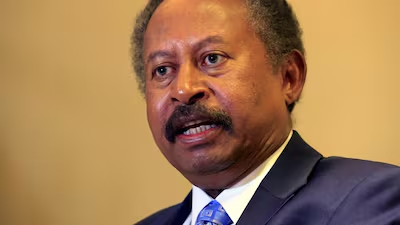
Sudan's Prime Minister Abdalla Hamdok speaks during a Reuters interview in Khartoum, Sudan, on August 24, 2019.
Sudan's Prime Minister Abdalla Hamdok speaks during a Reuters interview in Khartoum, Sudan, on August 24, 2019.
Sudan launches diplomatic campaign over border dispute with Ethiopia
Khartoum sends senior envoys to Saudi Arabia and South Africa

